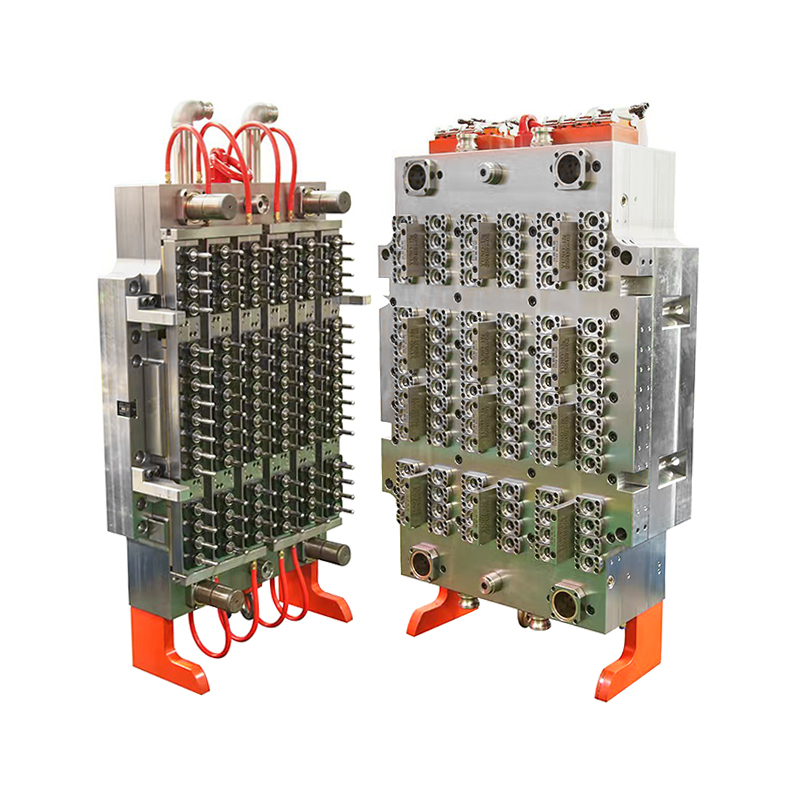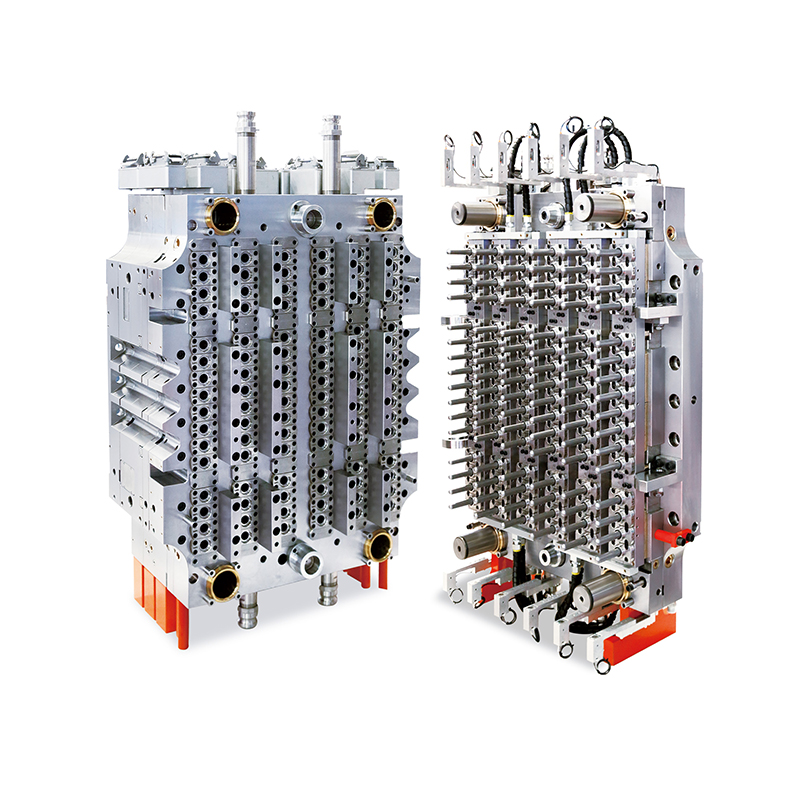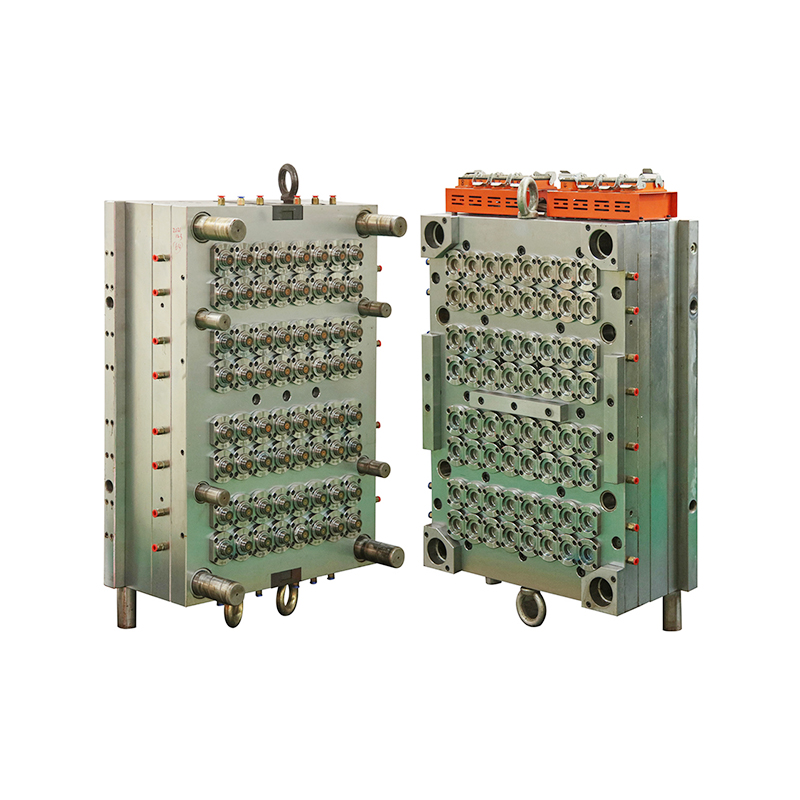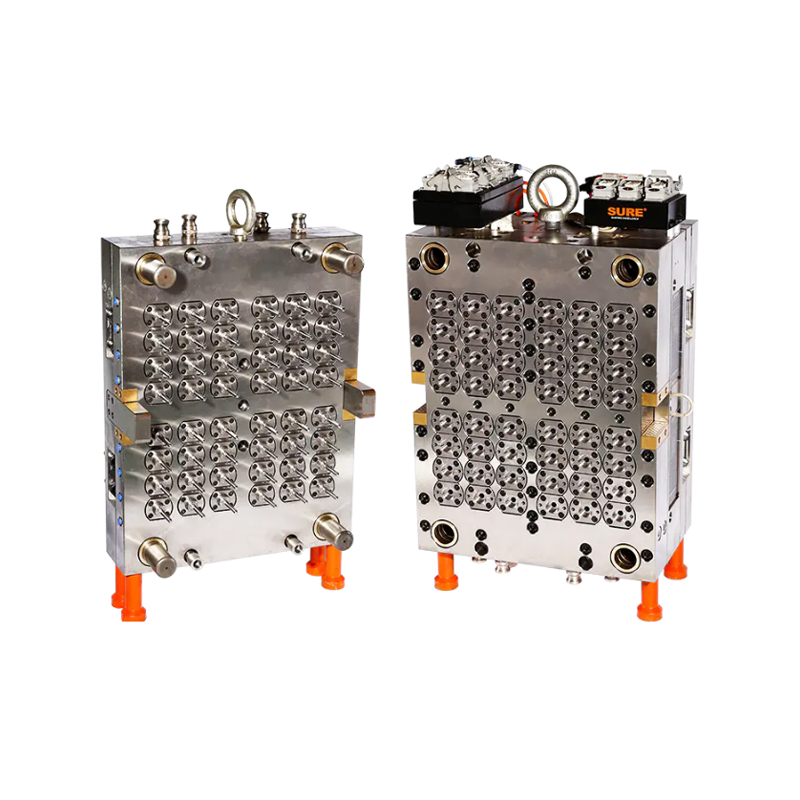No.148 Yongda Road, Jiangkou Street, Huangyan, Taizhou, Zhejiang, China.
As the demand for lightweight, durable, and environmentally friendly packaging solutions continues to grow worldwide, manufacturers are turning to innovative injection molding technologies to meet these challenges. Among the key components in PET bottle production, the 12-Cavity PET Preform Mold has emerged as a crucial tool, balancing precision engineering with operational efficiency to deliver consistent, high-quality preforms for various packaging needs.
Meeting the Demand for Consistent PET Preforms
PET (polyethylene terephthalate) has become the material of choice for beverage, food, and consumer goods packaging due to its strength-to-weight ratio, recyclability, and clarity. The production of PET bottles begins with the creation of preforms—small, test-tube-shaped intermediates that are later blown into the final bottle shape.
The 12-cavity mold plays a vital role in this process by producing multiple preforms per injection cycle. While higher-cavity molds exist, the 12-cavity configuration offers an optimal blend of manageable production volume and control over preform quality, making it particularly attractive for mid-sized manufacturers and niche product lines.
Precision Engineering for Uniformity and Quality
One of the features of the 12-cavity mold is its meticulous design, which ensures every cavity produces preforms with uniform dimensions, wall thickness, and weight. This uniformity is critical: even small variations can affect bottle performance, to issues during blow molding, filling, or sealing.
Using advanced CNC machining techniques, mold manufacturers craft each cavity to exacting tolerances. This level of precision ensures consistent melt flow and cooling across all cavities, reducing defects such as warpage, sink marks, or incomplete fills.
Consistent preform quality also contributes to efficient downstream processing. Bottles formed from uniform preforms have predictable mechanical properties, enhancing their durability during transport and usage, and ensuring reliable sealing and appearance.
Efficiency and Flexibility in Production
The 12-cavity mold offers a production capacity that suits many manufacturers balancing output and operational flexibility. Its moderate size allows it to be used on a wide range of injection molding machines without the need for extensive infrastructure upgrades.
Additionally, the mold can be customized for different preform sizes and neck finishes, accommodating various bottle designs for beverages, household chemicals, personal care products, and more. This flexibility supports quick product changeovers and product diversification, vital in markets where consumer preferences evolve rapidly.
Durable Construction for Long-Term Use
High-volume injection molding demands tools that can withstand continuous operation under high temperature and pressure conditions. The 12-cavity mold is constructed from high-grade tool steels with surface treatments that enhance wear resistance and corrosion protection.
This robust build not only prolongs mold life but also reduces maintenance intervals and associated downtime. Furthermore, the modular design allows for easy cavity replacement or repair, facilitating quick turnaround times and minimizing production disruption.
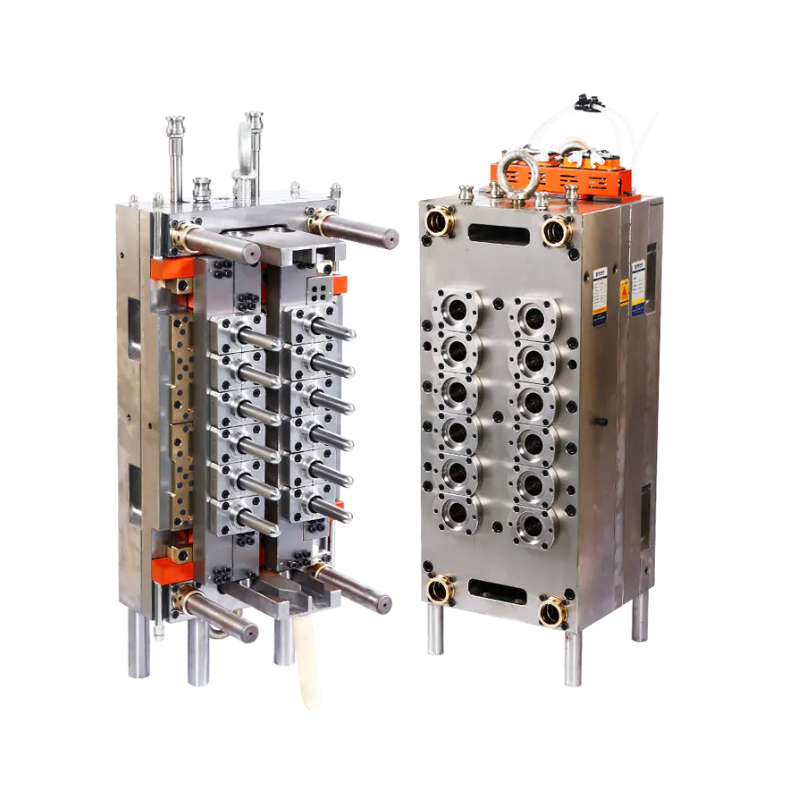
Supporting Sustainable Manufacturing Goals
Sustainability has become a central concern for the packaging industry. The 12-cavity mold contributes to greener manufacturing by enabling precise control over preform weight and material distribution, supporting lightweighting efforts that reduce overall plastic use.
Moreover, the mold is compatible with recycled PET (rPET) resins, helping manufacturers incorporate environmentally responsible materials without sacrificing product quality. Coupled with efficient hot runner systems that minimize material waste, the mold supports both economic and ecological objectives.
Integration with Industry 4.0 Technologies
Modern injection molding is increasingly reliant on digital technologies for process optimization. The 12-cavity PET preform mold can be integrated with sensors and monitoring systems that track temperature, pressure, and cycle times in real-time.
Such data-driven control enables manufacturers to maintain consistent quality, quickly identify process deviations, and implement predictive maintenance strategies. This alignment with Industry 4.0 principles enhances production reliability and reduces operational costs.
Applications Across Diverse Sectors
While the beverage industry remains a primary user of PET preforms, the 12-cavity mold’s versatility extends its applicability to various sectors. Personal care products like shampoos and lotions, household cleaners, pharmaceuticals, and even specialty chemicals increasingly rely on PET containers produced from high-quality preforms.


 英语
英语 法语
法语
